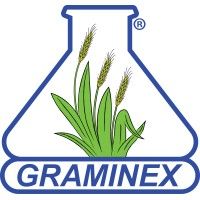预约演示
更新于:2025-05-07
Andropause
更年期
更新于:2025-05-07
基本信息
别名 Andropause、Change of Life, Male、Climacteric, Male + [10] |
简介 An endocrine state in men, characterized by a significant decline in the production of TESTOSTERONE; DEHYDROEPIANDROSTERONE; and other hormones such as HUMAN GROWTH HORMONE. Andropause symptoms are related to the lack of androgens including DEPRESSION, sexual dysfunction, and OSTEOPOROSIS. Andropause may also result from hormonal ablation therapy for malignant diseases. |
关联
19
项与 更年期 相关的药物靶点- |
作用机制- |
原研机构 |
在研适应症 |
非在研适应症- |
最高研发阶段批准上市 |
首次获批国家/地区 德国 |
首次获批日期2014-04-01 |
靶点 |
作用机制 AR激动剂 |
原研机构- |
非在研适应症- |
最高研发阶段批准上市 |
首次获批国家/地区- |
首次获批日期1999-07-12 |
靶点- |
作用机制- |
非在研适应症- |
最高研发阶段批准上市 |
首次获批国家/地区 日本 |
首次获批日期1986-12-25 |
19
项与 更年期 相关的临床试验NCT06889753
A Randomized, Triple-blind, Placebo Controlled, Parallel Clinical Trial to Investigate the Effect of Pollen Extracts on Menopausal Symptoms in Healthy Women.
The goal of this study is to investigate the effect of pollen extracts on menopausal symptoms in healthy women The main question it aims to answer is:
What is the difference in change in severity of menopausal symptoms as assessed by the total Menopause Rating Scale (MRS) score from baseline at Week 36 between Graminex Water Soluble Pollen Extract (WSPE), Lipid Soluble Pollen Extract (LSPE), and Placebo?
Participants will be asked to complete the MRS assessment tool to rate their menopausal symptoms while receiving either WSPE, LSPE, or Placebo.
What is the difference in change in severity of menopausal symptoms as assessed by the total Menopause Rating Scale (MRS) score from baseline at Week 36 between Graminex Water Soluble Pollen Extract (WSPE), Lipid Soluble Pollen Extract (LSPE), and Placebo?
Participants will be asked to complete the MRS assessment tool to rate their menopausal symptoms while receiving either WSPE, LSPE, or Placebo.
开始日期2025-07-01 |
申办/合作机构  Graminex LLC Graminex LLC [+1] |
NCT06813404
Building Strength for Menopause
A pilot study investigating whether heavy resistance training is enjoyable, acceptable, and feasible for middle-aged women undergoing the menopausal transition. Additional outcomes to be assessed include changes to strength and muscle composition as well as changes to cognitive function and self-reported measures of fatigue, cognition, self-efficacy, and mood.
开始日期2025-03-01 |
申办/合作机构 |
NCT06759350
Soy Isoflavonates Versus Placebo on Quality of Life in Menopausal Women: Randomized Double-blind Clinical Trial: FLAVOCAV TRIAL
Within the context of the proposed research study, the effect of soy isoflavonoid supplements on the quality of life and coagulation of menopausal women. It has been observed that menopause, as a physiological process, is associated with alterations in the physical, mental and sexual quality of life, making the use of hormone replacement therapy necessary; however, hormone therapy is associated with hypercoagulability, since it has been seen that women have higher levels of thrombogenic microvesicles such as: platelets with a greater probability of causing blood clotting were more likely to present a greater amount of white matter hyperintensities, which appear in the MRI scan.
开始日期2025-01-01 |
100 项与 更年期 相关的临床结果
登录后查看更多信息
100 项与 更年期 相关的转化医学
登录后查看更多信息
0 项与 更年期 相关的专利(医药)
登录后查看更多信息
72
项与 更年期 相关的文献(医药)2025-01-01·American Journal of Men's Health
Psychosocial Factors and Andropause Symptoms Among Japanese Men: An Internet-Based Cross-Sectional Study
Article
作者: Tanji, Fumiya ; Nishimoto, Daisaku ; Nanbu, Hirohito ; Kawajiri, Maiko
2024-07-22·Cureus
Andropause in Diabetic and Non-diabetic Males: A Cross-Sectional Observational Study in Western India
Article
作者: Kadiwala, Ramiz S ; Dhadwad, Jagannath S
2024-01-01·Industrial Health
Association between andropause symptoms and work functioning impairment: a cross-sectional study in two Japanese companies
Article
作者: TATEISHI, Seiichiro ; OKAWARA, Makoto ; HORIE, Shigeo ; FUJINO, Yoshihisa ; YASUI, Toshiyuki
分析
对领域进行一次全面的分析。
登录
或

生物医药百科问答
全新生物医药AI Agent 覆盖科研全链路,让突破性发现快人一步
立即开始免费试用!
智慧芽新药情报库是智慧芽专为生命科学人士构建的基于AI的创新药情报平台,助您全方位提升您的研发与决策效率。
立即开始数据试用!
智慧芽新药库数据也通过智慧芽数据服务平台,以API或者数据包形式对外开放,助您更加充分利用智慧芽新药情报信息。
生物序列数据库
生物药研发创新
免费使用
化学结构数据库
小分子化药研发创新
免费使用




